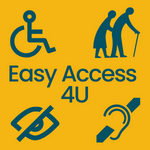
Category of ‘mental retardation’ in NHS Digital’s annual statistics demeans patients, campaigners say
The NHS has been criticised for using outdated and offensive terminology in its official statistics when describing people with intellectual disabilities.
NHS Digital publishes annual statistics that record all admissions, appointments and attendances for all patients at NHS hospitals across England and is broken down by specific diagnostic categories.
Among these categories, the term “mental retardation” is used to refer to patients with learning or intellectual disabilities. It is a term widely considered to be offensive, and even in NHS guidance is described as outdated. The guidance says it should now be replaced with terms such as intellectual disability.
Although the terminology used in the NHS statistics are based on a diagnostic classification system by the World Health Organization (WHO) known as ICD-10, the WHO has since updated its classification to remove the term, in its latest classification system ICD-11. The latest NHS Digital statistics, published in September after the WHO’s guidance came into effect, still uses the term “mental retardation”.
NHS Digital have said that it was not possible to use the updated classification system in the most recent statistics, because it was not available for the whole time period the publication covers.
Ciara Lawrence, who has a learning disability and is the engagement lead at the learning disability charity Mencap, said the terminology used in the statistics was “unacceptable and describe people like me as a second-class citizen, with no value to society. It’s insulting and truly shocks me.”
She added: “The NHS need to assess and review the use of language that the World Health Organization have officially changed. Offensive and outdated terms like this should not be used at all, particularly by healthcare professionals.
“People with a learning disability face significant barriers and discrimination when it comes to accessing healthcare, and words like this show how far we still have to go, to reach equality.”
Gemma Hope, the director of policy at Leonard Cheshire, a disability charity, said: “Inclusive language really matters. It’s incredibly disappointing to see words which are both offensive and symptomatic of an outdated medical model of disability being used within the NHS. Language plays an essential role in building a much more inclusive society and there is no excuse, and no place, for outdated terminology, especially within the NHS.
“The NHS need to urgently change the terminology used within its documentation. Charities like Leonard Cheshire can provide essential training in order to help organisations promote inclusive environments.”
An NHS Digital spokesperson said: “We acknowledge that ‘mental retardation’ is an outdated term and, in collaboration with the Learning Disabilities Observatory, we put forward a recommendation to the WHO for an update to its terminology.
“The WHO changed this language in ICD-11, which was launched on January 1, 2022, and it is expected it will be adopted by members within five years.
“Moving to ICD-11 is a significant piece of work as the existing standard is used in many datasets and systems, and we will be consulting on the best way to achieve this once we have identified options.”
The World Health Organization has been approached for comment.

Comments